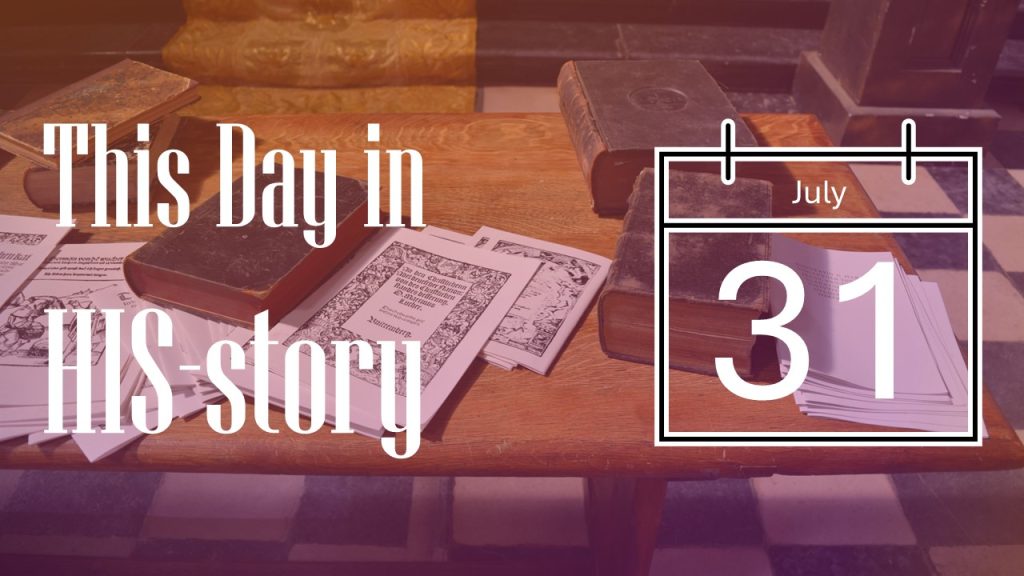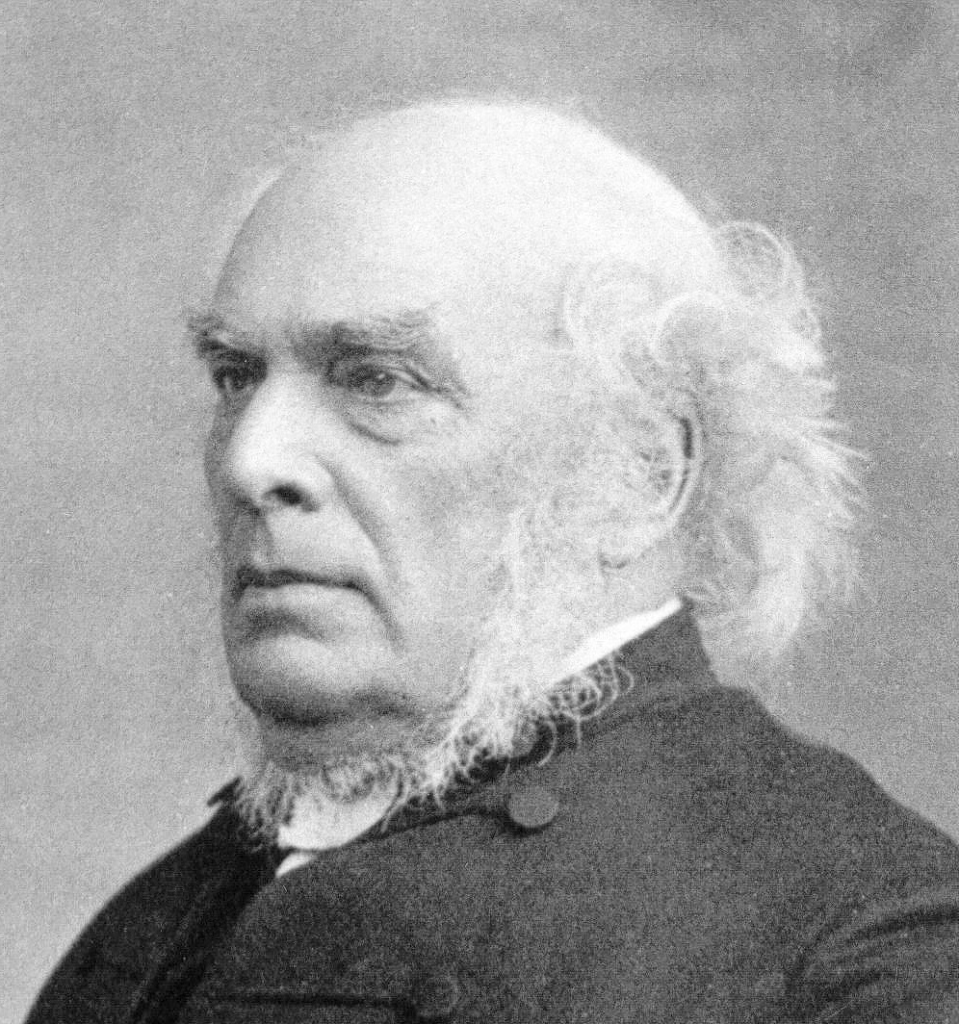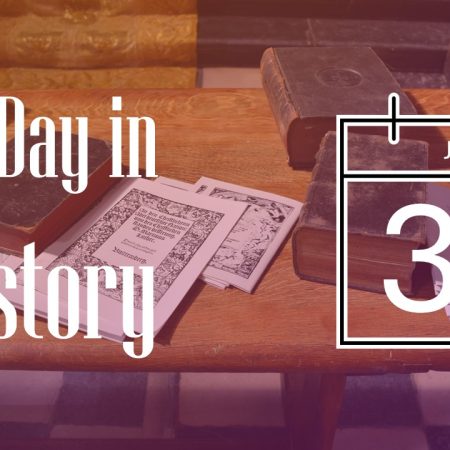
1820
HT: Christian History Institute
The Moravians were among the earliest Protestants to engage in foreign mission work. Their outreach included efforts among the Eskimos of Newfoundland and Labrador. In an outpost at Nain, they saw many conversions with great improvement of character.

The mission at Hebron, Labrador, around 1860.
Original drawing by Moravian Bishop Levin Theodor Reichel (1812-1878)
On this day, 31 July, 1820, a mission letter carried the following joyful report:
“The Lord is graciously pleased to cause his power to be made manifest in the conversion of sinners, and in the building up our dear Esquimaux flock in the faith by which we are saved. This we may truly testify to his praise. The Father draws them to the Son, and the Holy Spirit leads them in the way of life everlasting. We find open ears and hearts when we declare to them the love of Jesus as their Saviour, and his blessing rests upon our feeble testimony of his atoning death and passion. Many a heart, by nature hard as the surrounding rocks, has been broken by the divine power of the word of the cross.”
The Moravians in Labrador. Edinburgh: J. Ritchie, 1833
1889
Please don’t write a biography of me.” Racked with pain in the Summer of 1889, Horatius Bonar knew he was dying. He also knew that people would be interested in his life.

But during his ministry, his one interest had been the glory of Christ, and he wanted to keep it that way. “Point men to Christ, not to Bonar,” he might have said. That is what his sermons had always done:
“If Christ is not the substitute, he is nothing to the sinner. If he did not die as the sin-bearer, he has died in vain. Let us not be deceived on this point nor misled by those who, when they announce Christ as the deliverer, think they have preached the gospel. If I throw a rope to a drowning man, I am a deliverer. But is Christ no more than that? If I cast myself into the sea and risk myself to save another, I am a deliverer. But is Christ no more? Did He risk His life? The very essence of Christ’s deliverance is the substitution of himself for us–his life for ours! He did not come to risk his life; he came to die! He did not redeem us by a little loss, a little sacrifice, a little labor, a little suffering: ‘He redeemed us to God by His blood’ (I Peter 1:18,19). He gave all he had, even his life, for us. This is the kind of deliverance that awakens the happy song, ‘To Him that loved us, and washed us from our sins in His own blood’ (Revelation 1:5).”
Christ’s deliverance wakened happy songs in Bonar. Although many of his hymns were originally written for children, they were so brim full of sound teaching that adults loved to sing them, too.
I heard the voice of Jesus say, “Come unto me and rest;
Lay down, thou weary one, lay down, Thy head upon my breast.”
I came to Jesus as I was, weary and worn and sad;
I found in him a resting place, And he has made me glad.
When Horatius Bonar died on this day, July 31, 1889, his wish was respected; no biography was written of him. Just a few memories and a short sketch of his life have come down to us.
Born in Edinburgh, Scotland, he studied at Edinburgh University. Early on, he allied himself with three of the most spiritual men of his day: Thomas Chalmers, William C. Burns and Robert Murray McCheyne. As a young pastor, he earnestly preached in villages and farmhouses throughout his district. He saw evangelization in a different light from his contemporaries. “We think if we can but get men converted, it does not much matter how. Our whole anxiety is, not ‘How shall we secure the glory of Jehovah?’ but ‘How shall we multiply conversions?'” To Bonar, Christ had to come first.
When the evangelical party formed the Free Church, Bonar was with them heart and soul. In his eyes, the old church with its civil service pastors, had failed in its responsibility to arouse the faith of the nation.
A man of prayer and song, Bonar was also a man of sorrow. Five of his children died young. But later, his widowed daughter and her five children had to move in with him. Many grandparents would groan at the added burden, but Bonar rejoiced. To him it was as if God had given him five children to replace those he had lost.
